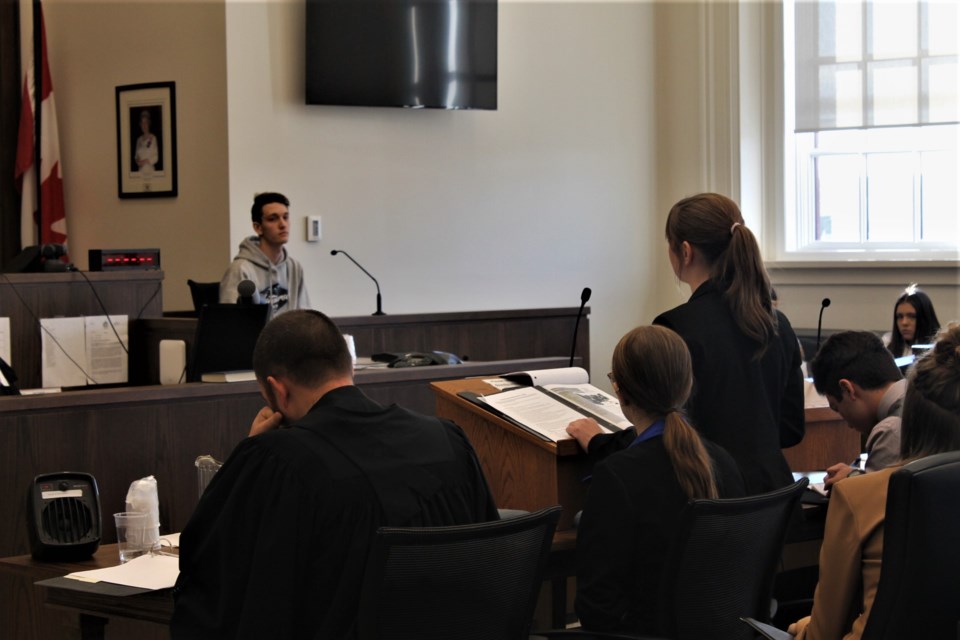It was a tense afternoon at the Court of Queen’s Bench, as a courtroom full of students listened intently to one of their own stand accused of two serious offenses — fake offenses, of course.
Law 30 students from both Vanier Collegiate and Central Collegiate took part in the mock trial, taking the roles of the jury, defense council, Crown prosecution, and even then accused and called witnesses.
The exercise played out exactly as a real trial would, with Justice Darin Chow presiding over the case and sheriff and registrar Warren Miller managing the courtroom process.
Local lawyer Tim Hansen and Crown prosecutor Stephen Yusuff offered their expertise, guiding the students through the proceedings — although it was the students who crafted and handled the examination of witnesses, and delivered the closing remarks.
It was also a jury of students who deliberated on the final verdict of the two charges on the table, with a secondary jury also deliberating just for the experience.
Interestingly enough, the primary jury convicted the accused of only one of two charges, while the secondary jury acquitted the accused of both charges — a good lesson on the flexible nature of a trial by jury.
“They get to see all facets of it, right from the picking of the jury, to the questioning, right all the way to the end,” said Cal Carter, Central’s Law 30 teacher. “They've seen that it's not the same as what they see on TV and in the movies.”
For the most part, Central students usually handle the mock trial themselves. This year, however, Carter reached out to the Vanier Law 30 class to create a twist.
Central students were tasked with the Crown prosecution, while Vanier students took the role of the defence. Both juries were made up of students from both schools.
“Vanier does Law 30 in the first semester as well, so we were able to do this [together],” said Carter. “Anytime you can go up against another class or another school or anything like that, it just kind of adds to the drama, if you will.”
Carter organizes the mock trial for his class each year, to give the students a realistic courtroom experience. The purpose is to put into action the concepts the class is learning about in the classroom in a more visceral way.
For some, Carter said, it’s even a moment that sparks an interest in law as a career.
“I've had several students in the past that have now gone on to law, because of this particular exercise,” said Carter.
The chance to try a case in the Court of Queen’s Bench is a one-of-a-kind opportunity, and Carter feels that the experience only enhances his students’ understanding.
“The students can now put some of the theory into practice and they can kind of see that, and that really helps them in their learning,” said Carter. “And I think anytime they can do that it's really effective and it really stays with them.”
The experience gave insight into the process of the Canadian justice system, said Carter, hopefully in a way that piques an interest in his students.




